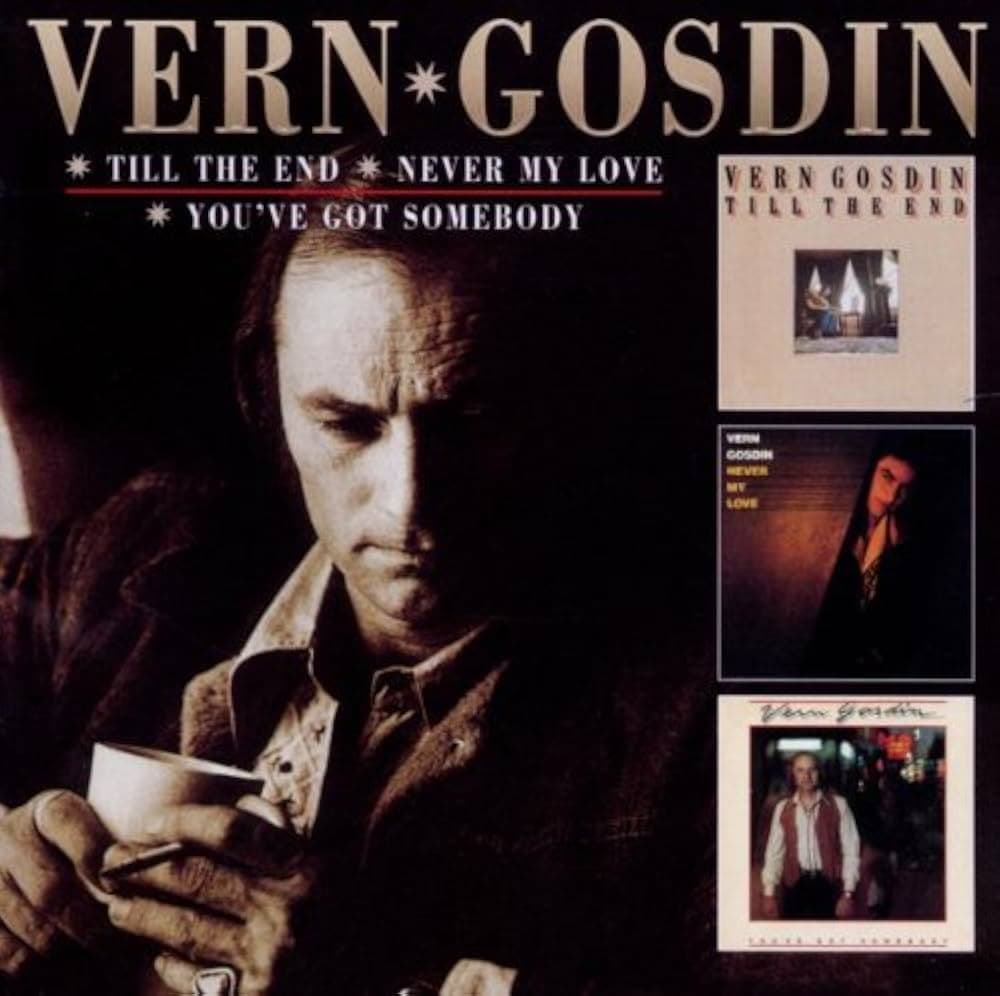
The Voice That Broke Hearts: Vern Gosdin’s Quiet Pledge
When the name Vern Gosdin is whispered amongst true country music aficionados, it is usually followed by his cherished nickname, “The Voice.” It was a voice that didn’t just sing songs; it inhabited them, delivering narratives of heartache and hard-won wisdom with a soulful depth rarely matched since the days of George Jones. In the mid-1970s, as the genre was grappling with the slickness of the encroaching pop sounds, Gosdin gave us a perfect, aching reminder of country music’s core purpose with his 1977 hit, “Till The End.”
This song was a vital stepping stone in the career of a man who didn’t fully hit his stride as a major solo artist until his forties. Released in June 1977 on the Elektra label, “Till The End” quickly became a substantial success. It peaked at Number 7 on the Billboard Hot Country Singles chart, securing its place as one of Vern Gosdin’s early signature tunes and a key track on his album of the same name. Its success helped announce his return to the music scene after a brief, self-imposed retirement from performing to run a glass company. It was a crucial signal to Nashville that this Alabamian journeyman was a serious contender, someone whose commitment to traditional, emotional country was unshakable.
Adding to the song’s timeless beauty was the inclusion of the stellar female vocalist Janie Fricke, who provided perfectly blended harmonies. Her soaring background vocals, which also featured on other Gosdin hits around that period, gave the track an added layer of texture and longing. This duet structure—though Fricke was officially credited as the featured female vocalist rather than a co-headliner—added emotional weight, creating a dialogue between the singer’s promise and the melancholic echo of his lost love.
The true, resonant power of “Till The End” lies in its devastating story, which was deeply personal to Gosdin. He co-wrote the track with his then-wife, Cathy Gosdin. In the song, the narrator is making a solemn, heartbreaking declaration to a former lover that the bond they shared is eternal, regardless of their physical separation or the passage of time. The lyrics are a painful acceptance of a love that is over but will never die: “If I never see your loving face again / I’ll go on loving you ’Till The End / And if my broken-hearted love don’t find a way to mend / I’ll go on loving you ’Till The End.” It is the ultimate expression of devotion, one that transcends the bitterness of a breakup and settles into a quiet, resigned permanence.
For those of us who came of age with this music, the simple, heartfelt sadness of “Till The End” takes us back to smoky jukeboxes and late-night drives, times when emotions were perhaps simpler but felt just as profound. It stands today as a monument to Gosdin’s authenticity. Unlike many of the polished, often frivolous records of the era, this one had grit, truth, and a soul-baring vulnerability that few contemporary singers dared to touch. It is a song that doesn’t just talk about pain; it sings it, and for that, we still listen, and we still remember. The song’s legacy of sincerity was cemented over thirty years later when country superstars Alan Jackson and Lee Ann Womack recorded their own beautiful duet version for Jackson’s 2010 album Freight Train, proving that the truth of Vern Gosdin’s early declaration endures.